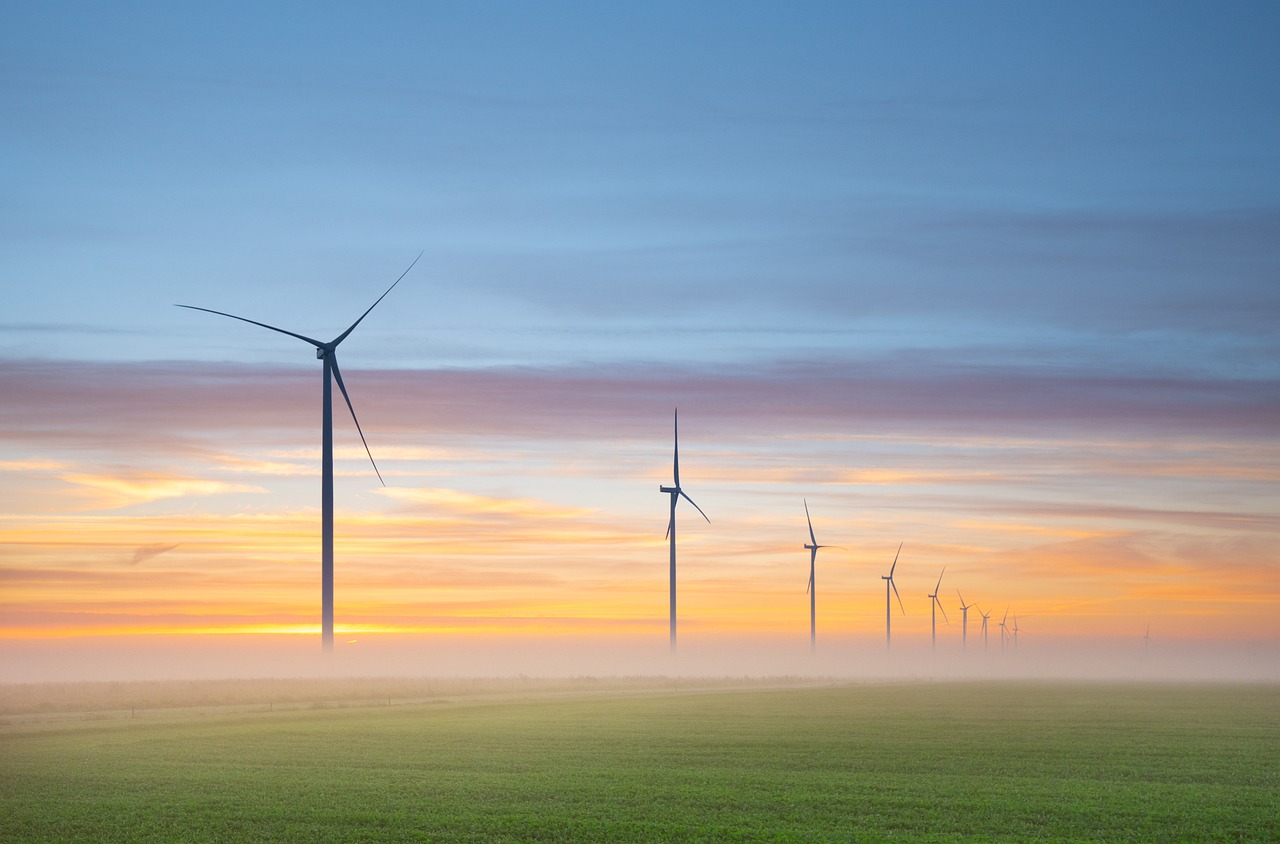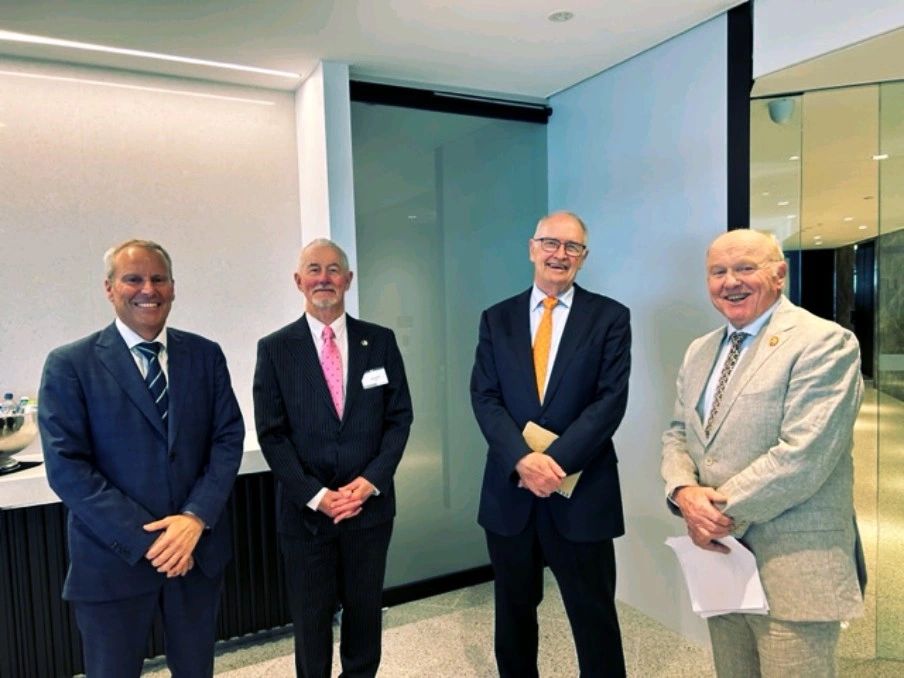Consul-General of Japan Perth Office, Mr. Naito Yasushi, Professor Ross Garnaut AC, Partner of Clayton Utz, Mr. Mark Paganin, Ladies and Gentlemen
Welcome to Australia Japan Business Council’s November business event: WA in the Zero Carbon Japanese and World Economy.
My name is Richard Sandover. I am Chair of the Australia-Japan Business Council.
I acknowledge the traditional custodians of the land on which we are holding this event, the Whadjuk people. I wish to acknowledge and respect their continuing culture and the contribution they make to the life of this wonderful city and region.
I acknowledge our hardworking board, Deputy Chair, Mayumi Laughton-Smith, and Board Members, Andrew Tan, David McCulloch, Jack Smith, Tamas Zegrean, and Isaac Stewart.
Our mission is to expand and deepen two-way trade and investment, deepen understanding and respect for Australia’s and Japan’s interests, and the fostering of economic and cultural cooperation and partnerships with their peoples, organisations, and governments.
In this vein, AJBC provides a platform for the exchange of information on current issues and for addressing the challenges and opportunities arising from the Australia-Japan relationship. AJBC’s objective is to enhance mutual understanding and community engagement through networking, business events, and B2B and B2G introductions.
AJBC welcomes all new members. We have set our membership fees at a level to attract small and medium-sized businesses. If your organisation is not already a member, we urge you to become a member and contribute to the success of AJBC and its mission.
A common desire expressed yesterday by speakers at the excellent Curtin University Engagement Event – Japan in the World: Past Present and Future, was for the need to step up collaboration between Australia and Japan in academic and industry research and the corporate and government spheres to maximise the mitigation measures to combat global carbon emissions and take advantage of the concomitant economic opportunities that flow.
The point has been made recently by eminent scientists immersed in climate change mitigation measures that without further innovation, the global biosphere will not be stabilised at 2.0 degrees Celsius or lower. It seems based on the latest research the goal of keeping global temperatures to less than 1.5 degrees Celsius by 2050 may now be out of reach; although I believe our eminent speaker on this subject, Professor Ross Garnaut AC, is not so pessimistic. At a 2.5 degrees celsius increase, Western Australia will lose our wheatbelt to desert. The climate of Perth is now tracking the climate of Geraldton 30 years ago. Geraldton is plus 400 kilometres north of Perth.
So, the citizens of Western Australia have compelling reasons both in terms of loss of habitat and reaping the economic rewards available if WA can meet the challenges and take advantage of the extraordinary economic opportunities arising from the global response to climate change.
For this to occur, WA will need to collaborate with trusted partners who can assist WA in generating cheaper, cleaner, reliable, renewable power by harnessing our natural advantages arising from our abundant wind solar, and critical minerals in scalable quantities.
Japan is an obvious partner for WA, with its manufacturing base of advanced technology, its willingness to innovate with Australia, availability of significant capital and long shared history involving Japan, the WA government, and Australian companies. This led to WA establishing, amongst other things, the iron ore export industry in the 1960s and the LNG export industry in the 1980s and 90s.
Without the considerable initial support and collaboration of the WA and Commonwealth governments with the Japanese government, those highly successful industries would not have been possible. I remind you that the internal rate of return on investment of the Australian iron ore exporters among companies of scale is now one of the highest in the world.
The template of deep collaboration between Australia and Japan at all levels remains valid in WA for the creation of the new industries necessary for a successful transition to a global green economy.
According to Mark Carney, UN Special Envoy on Climate Action and Finance, former Governor of the Bank of England and Bank of Canada, recently made the following points: 7-8 years ago at the Paris Accord the world was heading towards a 3.5 degrees Celsius warming. Today we are tracking at 2.4 degrees. He thinks realistically the world is now heading towards sub-2 degrees warming. Five years ago, the world was spending US$500 billion on clean energy and US$900 billion on oil and gas per annum.
In 2022, the spend was US$1.2 trillion and US$900 billion on oil and gas. This year the spend will be US$1.8 trillion on clean energy and half of that on oil and gas. The progress that has been made is much faster than people expected at Glasgow 2 years ago. Production of renewable energy is much more economical than it was a few years ago. Carney thinks the ‘spend’ on solving climate emissions, now has almost unstoppable momentum. He makes the point that this is about geo-political security and not being hostage to Putin and other large Petro-States. It is also about economic security. The transition to zero emissions is a fundamental driver of jobs, competitiveness, and export growth.
In his speech to the Economic and Social Outlook conference on 2 November 2023, the Commonwealth Treasurer, the Hon. Dr. Jim Chalmers, noted that in order to maximise our advantages in renewable energy and grasp the economic and industrial opportunities, we need to get projects off the ground faster.
He makes a distinction between what is required for the domestic energy transition and Australia’s medium to long-term ambition to become a renewable energy superpower. The Treasurer notes the two objectives are intertwined and that without more decisive action across all levels of government, working with investors, industry, and communities, the energy transition will fall short of what Australia needs.
In response to this challenge, the Commonwealth government is reforming the Environment Protection and Biodiversity Conservation Act to de-risk approvals processes for the environment and investors. Through the Net Zero Authority’s work, it is addressing infrastructure gaps to coordinate and manage major projects in our regions, streamlining foreign investment processes, developing new ways to attract capital, and modernising Australian financial markets.
The Treasurer signaled significant reform in industry policy balancing competitiveness, distribution of opportunity, resilience, and national security anchored to Australia’s climate and energy goals.
The Commonwealth government, he says, will be guided by five tests:
- Whether Australia can be competitive in the industry, by leveraging and building up our comparative advantages.
- Whether it contributes to an efficient and orderly pathway to net zero.
- Whether it builds the capabilities and resilience of people and regions.
- Whether it improves Australia’s national security and economic resilience and supports the strategic objectives of our global partners.
- And whether it recognises the key role of the private sector and delivers genuine value for money for the government.
This has led the Commonwealth to identify 4 priority areas underpinned by and dependent on abundant, cheap, reliable renewable energy:
- Refining and processing critical minerals.
- Producing renewable hydrogen and its derivatives like ammonia.
- forging green metals such as green iron, steel, and bauxite.
- Supporting manufacturing of generation and storage technologies, including batteries.
This is good news for WA.
You have heard of the so-called ‘climate wars’ and the phrase ‘wasted decade’ being batted around in Australian politics; well at least one outstanding Australian stood tall throughout, identifying a pathway for Australia to make an outsize contribution to the global transition to a green economy.
Professor Ross Garnaut AC has played a significant role in the transformation of the Australian policy and business landscape over the past 40 years plus. We are proud he is ‘made in Western Australia’ having been born and grown up here.
As an outstanding economic adviser to Prime Minister Hawke, among many other roles, Professor Garnaut worked with Sir Charles Court’s WA government on behalf of the Commonwealth government providing crucial advice to the Hawke government, leading to the Commonwealth assisting the WA government, just as the application of the ‘take or pay’ provision underwriting the initial investment by Japanese companies in the fledging LNG industry, threatened to bankrupt WA.
In 2007 and updated in 2011, Professor Garnaut conducted a review on Climate Change and Policy Response to Climate Change for the Federal State, and Territory governments examining the impacts of climate change on the Australian economy and recommending medium to long-term policies to improve Australia’s prospects for sustained economic prosperity. Among numerous publications, he has researched, written or edited several seminal books on Australia’s low carbon opportunity, the latest of which was published in 2022 by La Trobe University Press in conjunction with Black Inc, titled ‘The SuperPower Transformation’ a sequel to his bestselling book ‘Superpower’. In the last decade, he has gone into business with Zen Energy as Australia’s first electricity retailer to have a near-term science-based emissions reduction target generating 100% renewable energy.
Oh! Did I mention Professor Garnaut was Australia’s Ambassador to China in 1985-88 and has a long connection with Japan amongst other things through his time as visiting professor at Hitotsubashi University and Nihon Keizai Kenkyu Centre?
These are to name but a few of his many achievements.
Today Professor Garnaut will speak on WA in the Zero Carbon Japanese and World Economy.
Richard Sandover
9 November 2023




